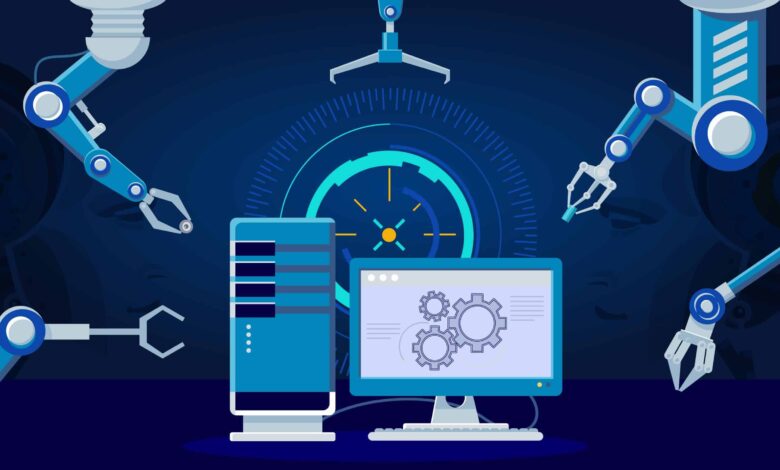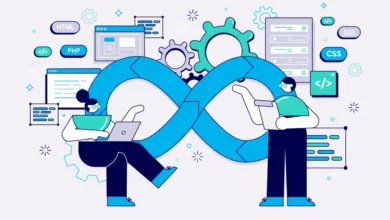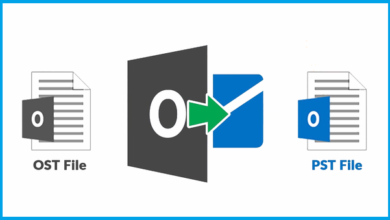AI-Powered Automation: The Future of Software Testing

The Benefits of AI and Machine Learning for Software Testing Automation
As software development evolves, testing becomes an increasingly critical component to ensure product quality, reliability, and functionality. Traditionally, software testing has been a time-consuming and labor-intensive process. However, the integration of AI and Machine Learning for software testing automation is revolutionizing this field. These technologies not only speed up the testing process but also improve accuracy, reduce human errors, and optimize the overall development cycle. The rise of AI-powered chatbots and intelligent automation tools has opened new opportunities for software development services to deliver high-quality products more efficiently.
This blog will explore the role of AI and Machine Learning in software testing automation, focusing on how these technologies are enhancing the testing process and contributing to faster, more reliable software releases.
The Evolution of Software Testing with AI and Machine Learning
In the past, software testing required manual effort, with developers and quality assurance teams dedicating significant time to running tests, identifying bugs, and ensuring the software met its requirements. This process was not only time-consuming but also prone to human error, especially in large-scale projects. Today, the incorporation of AI and Machine Learning has transformed how software testing is approached. By automating repetitive tasks and intelligently analyzing test data, AI-driven tools offer enhanced capabilities that go beyond what traditional methods can achieve.
AI and Machine Learning for software testing automation enable real-time data analysis, predictive capabilities, and continuous learning from previous tests, improving both the speed and quality of testing. Automated testing tools that incorporate AI can dynamically adjust their testing strategies based on outcomes, ensuring more comprehensive coverage and higher test accuracy.
Key Benefits of AI and Machine Learning for Software Testing Automation
- Faster Test Execution One of the most significant benefits of AI and Machine Learning in automated software testing is the speed at which tests can be executed. Automated testing tools powered by AI can run thousands of test cases in parallel, significantly reducing the time needed for testing. This is particularly useful for regression testing, where previously tested functionality is rechecked after code changes to ensure it still works as intended.
By utilizing machine learning in automated software testing tools, the system learns from previous tests and can optimize its testing approach to focus on the areas most likely to contain defects. This predictive capability allows teams to identify critical issues more quickly, speeding up the development process.
- Improved Accuracy and Reduced Human Error Manual testing is susceptible to errors due to the repetitive and complex nature of many test cases. Human testers may overlook certain scenarios or fail to execute tests consistently. AI-powered testing tools eliminate this risk by automating these processes and running tests with a level of precision that human testers cannot consistently achieve.
Additionally, AI algorithms can detect patterns in code that may lead to bugs or issues, even before they manifest during testing. This proactive approach helps identify problems early in the development cycle, reducing the likelihood of bugs making it into production.
- Continuous Testing and Integration In modern software development services, continuous integration and delivery (CI/CD) pipelines are essential for fast and reliable software releases. AI and Machine Learning for software testing automation enable continuous testing throughout the development cycle, ensuring that code is tested as soon as it’s written. This allows developers to catch issues early and resolve them before they impact the broader system.
AI-driven testing tools can automatically trigger tests whenever new code is integrated, ensuring that all parts of the software are continuously tested. By reducing the time between development and testing, these tools help development teams deliver software updates more frequently and with greater confidence in their stability.
- Enhanced Test Coverage One of the key challenges in software testing is ensuring comprehensive test coverage. With AI and Machine Learning, testing tools can generate a wide range of test cases, including edge cases that may not have been considered during manual test planning. By using data-driven insights, AI tools ensure that even the most obscure parts of the software are thoroughly tested.
For example, AI-powered chatbots integrated into the testing environment can simulate user interactions, testing different pathways through the software to uncover bugs that might not be detected through conventional testing. This expanded test coverage ensures that more potential issues are caught before the software is released.
How AI Improves Automated Software Testing

The incorporation of AI and Machine Learning for software testing automation goes beyond speeding up test execution. These technologies enable testing tools to learn from previous outcomes and refine their approach over time. By analyzing past test data, AI-driven tools can predict which areas of the codebase are most likely to fail, allowing teams to focus their testing efforts more effectively.
For instance, how AI improves automated software testing is evident in tools that can predict the likelihood of bugs based on historical data. By identifying code segments that frequently cause issues, AI can help testers prioritize their efforts and ensure that the highest-risk areas are thoroughly tested. This leads to more efficient testing cycles and fewer bugs in production.
Machine Learning in Automated Software Testing Tools
Machine learning in automated software testing tools is a game-changer for the testing landscape. Machine learning algorithms can analyze large datasets from previous tests and identify patterns or trends that human testers might miss. This ability to “learn” from past tests allows testing tools to improve over time, making them more effective with each iteration.
Machine learning is particularly useful for adaptive testing. As the software evolves and new features are added, machine learning algorithms can adapt the testing strategy to ensure that all new code is properly tested while focusing on areas that have historically been problematic. This dynamic approach to testing ensures that the software remains stable even as it grows in complexity.
For example, testing tools powered by machine learning can automatically adjust their testing approach based on code changes, ensuring that the most critical parts of the application are always tested. This not only improves test efficiency but also reduces the overall cost of testing by focusing resources on the areas that matter most.
The Role of AI-Powered Chatbots in Testing Automation
In addition to AI and Machine Learning, AI-powered chatbots play an increasingly important role in automating software testing processes. These chatbots can simulate user interactions, helping to test software functionality from the perspective of the end-user. By doing so, chatbots identify potential usability issues or bugs that might not be detected through traditional testing methods.
Furthermore, AI-powered chatbots can assist in managing the testing environment. They can initiate tests, provide real-time updates on test progress, and even suggest changes to the testing strategy based on outcomes. This level of automation reduces the workload for testing teams and ensures that tests are run consistently and efficiently.
The Future of AI and Machine Learning in Software Testing Automation
As AI and Machine Learning technologies continue to evolve, their impact on software testing automation will only grow. Future advancements may include more sophisticated predictive models that can not only detect bugs but also suggest code improvements to prevent them in the first place. Additionally, AI tools may become even more integrated into CI/CD pipelines, enabling even faster feedback loops and shorter development cycles.
With the rise of AI-powered chatbot and advanced automation tools, software development services can expect to see significant improvements in the efficiency, accuracy, and scope of their testing processes. As a result, development teams will be able to release high-quality software products faster and with greater confidence in their stability and performance.
Conclusion
The integration of AI and Machine Learning for software testing automation is transforming the way testing is conducted in modern software development. From speeding up test execution to improving accuracy and expanding test coverage, these technologies offer numerous benefits for development teams looking to optimize their workflows. By leveraging AI and Machine Learning, testing becomes more efficient, predictive, and reliable, allowing teams to deliver high-quality software faster than ever before.
As automation tools continue to evolve, their role in software testing will become even more essential, driving further innovation in software development services. For teams looking to stay ahead in a competitive market, adopting AI-powered testing solutions is no longer a luxury—it’s a necessity.
FAQs
- How do AI and Machine Learning improve automated software testing?
- AI and Machine Learning automate repetitive tasks, improve test accuracy, predict potential issues, and ensure continuous testing, reducing the time and effort required for software testing.
- What are the key benefits of using machine learning in automated software testing tools?
- Machine learning helps identify patterns in test data, predicts bugs before they occur, and dynamically adjusts testing strategies, ensuring comprehensive and efficient test coverage.
- Can AI-powered chatbots be used in software testing automation?
- Yes, AI-powered chatbots simulate user interactions to test software functionality and usability. They can also manage the testing environment, providing real-time updates and suggesting testing strategy adjustments.
- How does AI-driven testing impact the overall software development lifecycle?
- AI-driven testing speeds up the development process by identifying and resolving issues earlier, ensuring higher-quality releases and reducing time-to-market for software products.




